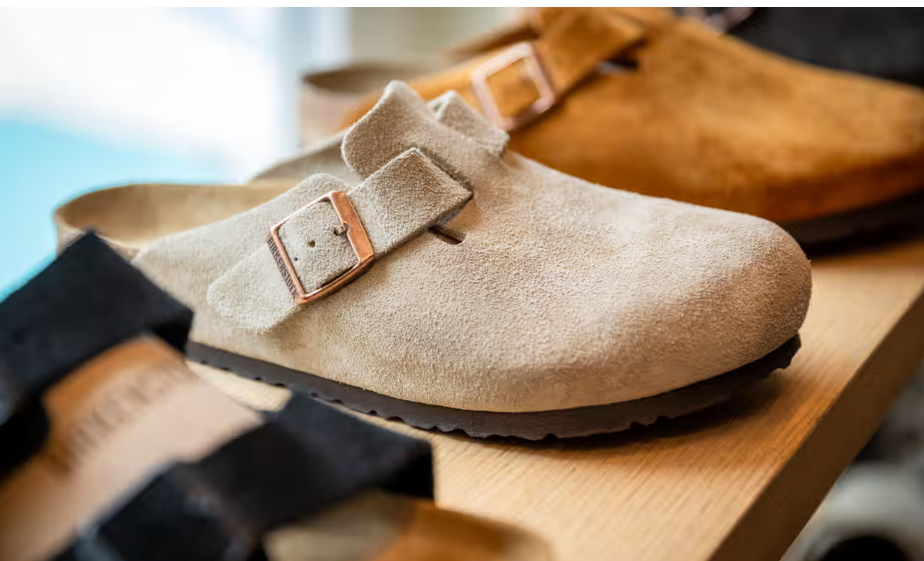Birkenstock experiences a 12.6% decline in shares following its entry into the US stock market

With a $7.5 billion valuation, Shoemaker lists on the New York Stock Exchange (NYSE) as investors were betting that sandal demand would decline.
After listing on the US stock exchange, shares of German shoemaker Birkenstock dropped 12.6%, valuing the company at $7.5 billion as investors speculated that customer demand for its cork-soled sandals—which have turned into an improbable fashion success story—would decline.
The footwear company set the price of its shares at $46 on Tuesday night, one day before they opened for trading in New York under the ticker symbol "BIRK." That amount placed the company's valuation at $8.6 billion (£7 billion), in the center of the $44 to $49 range that was given last week.
However, the shares quickly dropped as trade on the New York Stock Exchange was noted, and on Wednesday they finished at $40.20.
Earlier on Wednesday, Birkenstock executives—among them CEO Oliver Reichert—launched the stock market float on Wall Street by waving the shoes in the air.
Following decades of steady progress, the Birkenstock brand experienced significant growth during the pandemic as consumers began to prioritize firms that provided both comfort and legacy. Since employees are back in the workplace, there's been no need to return to more formal work wear because of the laxer dress requirements.
Birkenstock flip-flops
Last year, Birkenstock sold 30 million pairs thanks to this carefree atmosphere. Sales increased by nearly 30% to £1.1 billion, generating a £162 million profit.
With 72% of its clientele being female, Birkenstock is also gaining from a shift in the perception of femininity among young ladies, who no longer associate high heels and delicate footwear with being feminine.
The 250-year-old orthopaedic shoe company is hoping to raise almost $1.5 billion through its first public offering. A third of it will go toward debt repayment, with the remaining portion going to L Catterton, the private equity firm that bought the bulk of the company in 2021.
Oliver Reichert, the chief executive of Birkenstock, who became the company's first non-family member to lead it in 2013, outlined plans to sell other types of shoes, including clogs, trainers, shoes, and boots, as part of the company's pitch to investors as it looks to wean itself off of sandals.
Analysts have cautioned that the shoemaker is entering a challenging market as it makes its public debut. Concerns among investors include the darkening economic environment, a reduction in consumer confidence, and the underwhelming performance of other footwear firms' IPOs, such Dr Martens, whose value has plummeted since it went public in 2021.The "disappointing trajectories" of Dr Martens and Allbirds since their respective launches on the market, according to Susanna Streeter, analyst at Hargreaves Lansdown, "indicate there is some caution among investors about the path ahead for the brand."
"Those who wish to purchase may need to prepare for a potentially erratic journey ahead," Streeter continued, noting that "a surge of uncertainty frequently follows high-profile listings."
It follows a protracted decline in activity and a few highly anticipated entries that challenged demand. Although Arm Holdings, a chip designer, and Instacart, a supermarket delivery business, had successful launches, they both under pressure on Wednesday.